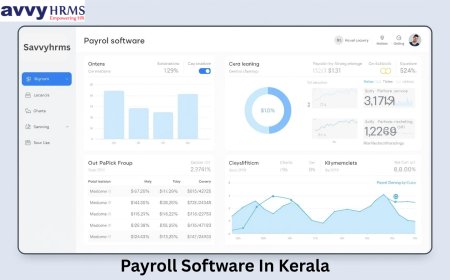How Time Tracking Apps Help Remote Teams Stay on Schedule
In today’s digital workplace, remote teams have become the new normal. While this flexibility boosts employee satisfaction and reduces overhead costs, it also brings a significant challenge — maintaining productivity and keeping everyone on schedule. That’s where time tracking apps and employee time tracking tools come into play.

1. The Challenge of Managing Remote Teams
When teams are spread across cities or even countries, it becomes difficult to monitor work hours, track project progress, and maintain accountability. Traditional methods like manual timesheets or Excel logs are time-consuming and prone to error.
Without proper visibility, managers often face issues such as:
-
Missed deadlines due to poor time allocation
-
Lack of insight into employee workloads
-
Difficulty in distinguishing productive and idle time
This is why many organizations are turning to time tracking tools that automate the entire process and provide real-time transparency.
2. What Are Time Tracking Apps?
Time tracking apps are digital tools designed to record how employees spend their work hours. These apps can automatically track activity, log time on specific tasks or projects, and generate reports that help both employees and employers optimize productivity.
Modern employee time tracking tools go beyond simple timers they integrate with project management systems, send productivity summaries, and even detect idle time, ensuring every minute of work is accounted for without micromanagement.
3. Benefits of Using Time Tracking Tools for Remote Teams
Better Productivity and Accountability
When team members know that their work hours and tasks are being tracked, they become more aware of how they spend their time. This promotes self-discipline and encourages focus.
For managers, these time tracking apps provide a transparent overview of each employee’s performance, helping to identify top performers and areas for improvement.
Accurate Project Planning
With data from time tracking tools, managers can estimate how long specific tasks or projects typically take. This allows for more accurate planning, realistic deadlines, and balanced workloads especially important when team members work asynchronously across time zones.
Elimination of Manual Errors
Manual time entry often leads to inaccuracies. Automated employee time tracking tools ensure that data is captured in real-time, reducing the risk of human error and saving hours of administrative work each week.
Enhanced Collaboration and Communication
Many best time tracking tools come with built-in dashboards and integrations with tools like Slack, Trello, and Asana. This keeps everyone on the same page and promotes accountability without constant check-ins.
Performance Insights
Time tracking data can reveal trends about how teams work peak productivity hours, time wasted on repetitive tasks, or potential burnout risks. Managers can use this insight to make better scheduling and workflow decisions.
4. Choosing the Best Time Tracking Tools for Remote Teams
When selecting a time tracking tool, consider these essential features:
-
Automatic Time Capture: To reduce manual input.
-
Activity Monitoring: Track websites, apps, or screens used during work hours.
-
Project & Task Tracking: Assign time to specific tasks or clients.
-
Reports & Analytics: Visualize productivity trends and billable hours.
-
Integrations: Compatibility with your existing project management tools.
5. How Time Tracking Boosts Team Morale
Interestingly, using time tracking apps doesn’t just improve efficiency it can also build trust. Transparent time reports allow employees to show the real effort they put into their work, and managers can recognize and reward top performers fairly.
When used properly, these tools promote a culture of accountability, not surveillance. Teams feel empowered because the focus shifts from “hours worked” to “results achieved.”
Conclusion
In a remote work environment, staying organized and meeting deadlines is crucial for success. Time tracking apps and employee time tracking tools simplify this process by providing transparency, improving planning accuracy, and fostering accountability.
By choosing one of the best time tracking tools, remote teams can stay on schedule, maintain productivity, and focus on what truly matters delivering great results, no matter where they work from.































